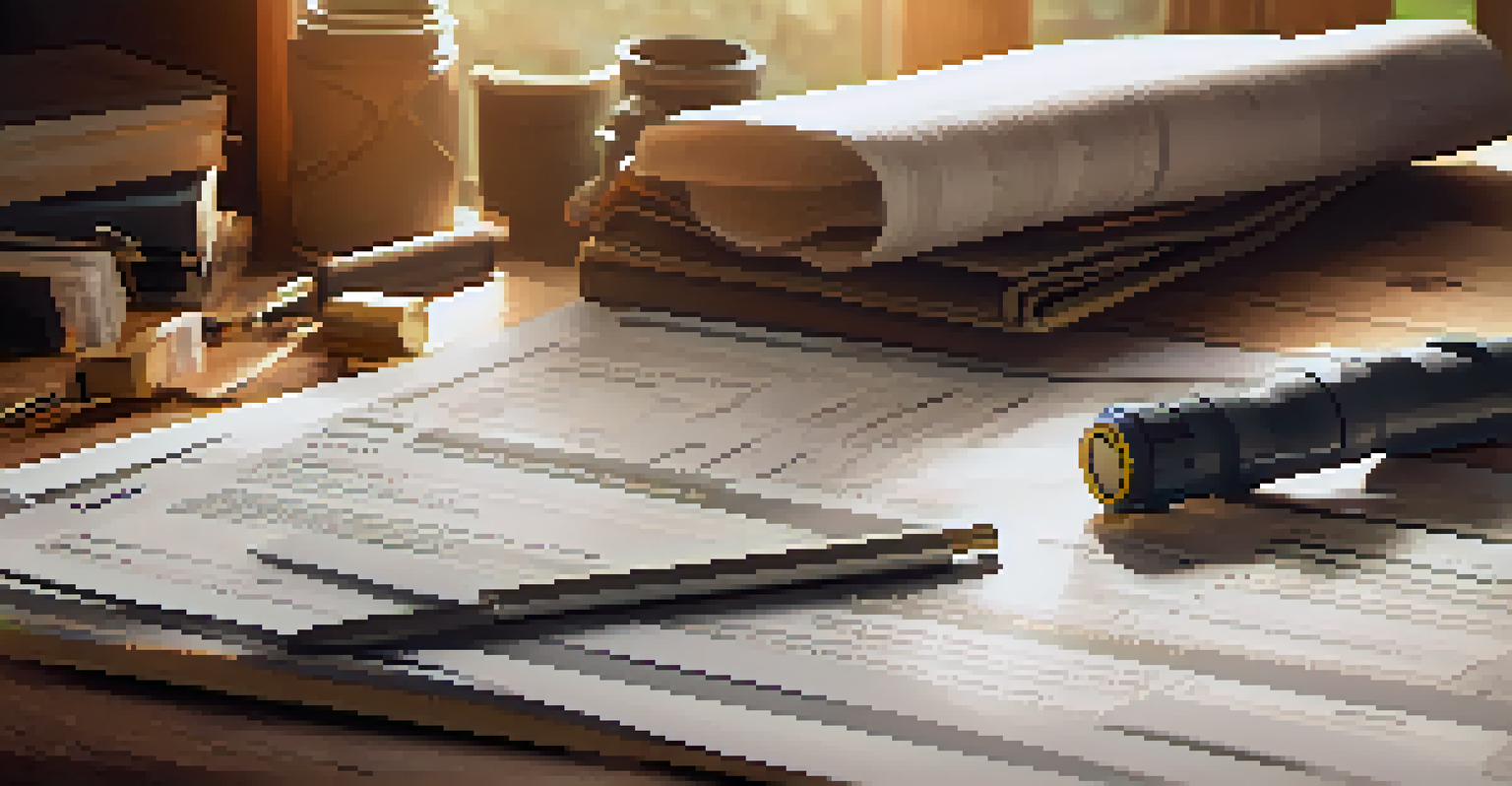Homeowner Responsibilities During the Inspection Process

Understanding the Inspection Process and Its Importance
Home inspections are a crucial step in the home buying or selling process. They help identify potential issues with the property, providing peace of mind to both buyers and sellers. As a homeowner, understanding what an inspection entails can empower you to make informed decisions about your property.
An ounce of prevention is worth a pound of cure.
During an inspection, a professional evaluates various aspects of your home, from the roof to the foundation. This thorough examination can reveal hidden problems that may not be visible at first glance. By being aware of the inspection's significance, you can better prepare for the process.
Ultimately, an inspection can save you from future headaches and costly repairs. Keeping this in mind, let's explore the specific responsibilities you have as a homeowner during the inspection process.
Preparing Your Home for the Inspector's Visit
Preparation is key to ensuring a smooth inspection process. Start by cleaning and decluttering your home to give the inspector easy access to all areas. Clear pathways, move furniture if needed, and ensure that the attic, basement, and crawl spaces are accessible.

Additionally, consider addressing minor repairs beforehand. Fixing leaky faucets or replacing burnt-out light bulbs can create a positive impression. A well-maintained home reflects your care and can lead to a more favorable inspection outcome.
Importance of Home Inspections
Home inspections are vital for identifying potential issues and ensuring peace of mind for buyers and sellers.
Lastly, gather relevant documentation, such as previous inspection reports, warranties, and maintenance records. Having these documents ready can help the inspector understand your home's history and maintenance efforts.
Communicating with the Inspector Effectively
Effective communication with the inspector can enhance the inspection experience. Be open and honest about any known issues or concerns you have regarding the property. This transparency allows the inspector to focus on areas that may require more attention.
The bitter taste of poor quality remains long after the sweetness of low price is forgotten.
Feel free to ask questions during the inspection. Understanding the process and what the inspector is looking for can demystify the experience. It’s also an opportunity to learn more about your home’s condition directly from the expert.
Remember, the inspector is there to help you, not to judge. Building a rapport can lead to valuable insights that may not be included in the final report.
Being Present During the Inspection
Being present during the inspection is beneficial for several reasons. It allows you to see firsthand what the inspector is evaluating, which can be enlightening. You can also ask questions and seek clarification on any issues that arise on the spot.
Additionally, your presence shows the inspector that you are invested in the process. This can foster a sense of trust and cooperation, ultimately resulting in a more thorough inspection. It’s also a chance to gain practical advice on home maintenance and improvement.
Prepare Your Home for Inspection
Cleaning, decluttering, and addressing minor repairs can create a positive impression during the inspection.
If you can’t be there, make sure to provide the inspector with any necessary access and instructions. Leaving a point of contact can also be helpful if questions arise during the inspection.
Addressing Potential Issues Before the Inspection
If you’re aware of any issues with your home, it’s wise to address them before the inspection. This proactive approach can prevent surprises and give you an opportunity to repair or disclose these concerns. For instance, if there’s a leaky roof, fixing it can save you from a negative report.
Another option is to get a pre-inspection done. This involves hiring a professional to inspect your home before it goes on the market. It allows you to identify and rectify issues early, giving you an advantage during the actual inspection.
Ultimately, addressing potential problems can not only lead to a smoother inspection but also enhance the overall value of your property.
Understanding the Inspection Report
Once the inspection is complete, you’ll receive a report detailing the inspector's findings. Understanding this report is crucial, as it highlights the condition of your home and any areas of concern. Take the time to read through it carefully and ask questions if anything is unclear.
The report typically categorizes issues as minor, major, or critical. This classification can help you prioritize repairs and negotiate with potential buyers. Being informed about the state of your home allows you to make educated decisions moving forward.
Understand the Inspection Report
Carefully reviewing the inspection report helps prioritize repairs and informs future decisions regarding your home.
Don’t hesitate to seek professional advice if the report indicates significant issues. A qualified contractor can provide further insights and potential solutions, helping you navigate the next steps.
Following Up on Inspection Findings
After reviewing the inspection report, it’s time to follow up on the findings. Addressing any significant issues as soon as possible can prevent further damage and maintain your home's value. Create a prioritized list of repairs based on the inspector's recommendations.
Consider getting quotes from different contractors to find the best value for necessary repairs. This not only ensures quality work but also helps you budget effectively. Being proactive about repairs demonstrates your commitment to maintaining the property.

Additionally, keeping records of the repairs made can be beneficial for future inspections or when selling your home. It shows potential buyers that the house has been well cared for.